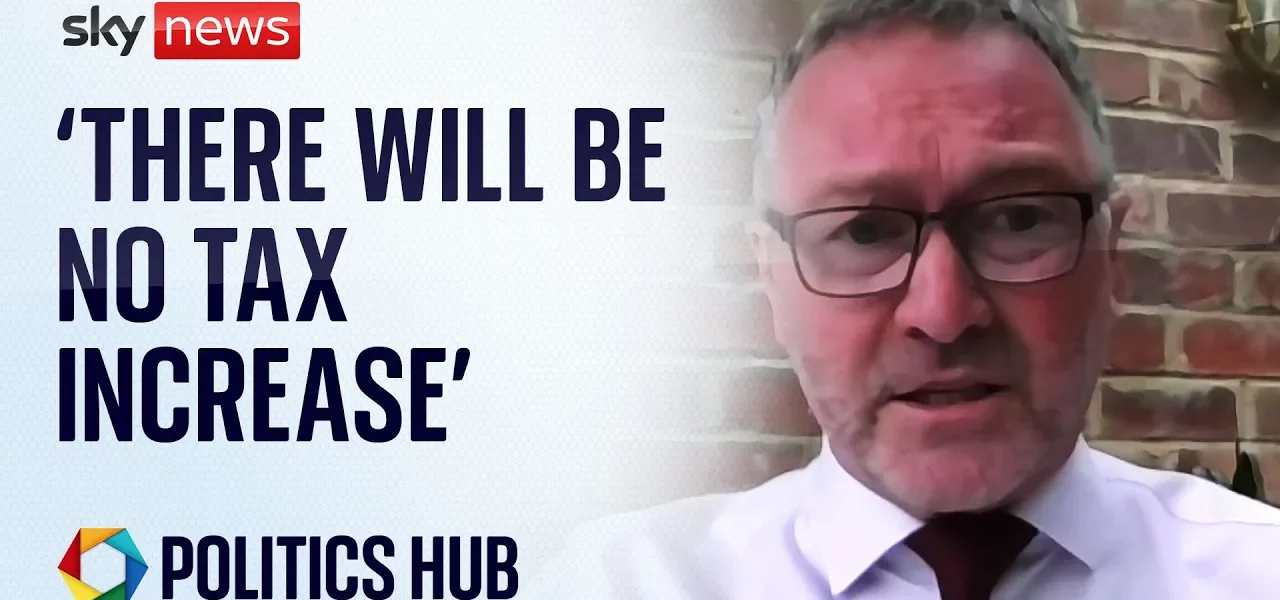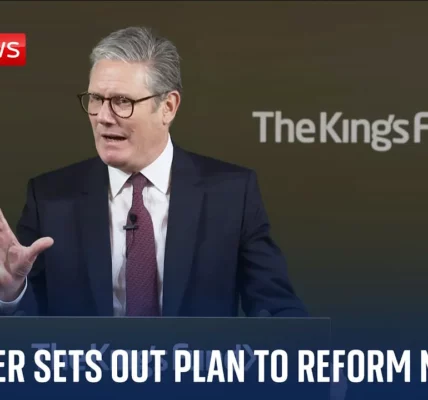Steve Reed Discusses Labour’s Stance on Taxes and Public Services

In a recent interview, Steve Reed articulated the Labour Party’s position on taxation and its implications for public services in the UK. This article delves into the key points raised during this discussion, emphasizing the party’s commitment to maintaining tax rates for working individuals while seeking alternative funding solutions to bolster public services.
Introduction
In a time of economic uncertainty and a rising cost of living, the Labour Party, represented by Steve Reed, has made significant assertions regarding taxation and public service funding. During a recent interview, Reed highlighted the party’s unwavering stance against increasing personal taxes while addressing the urgent need for financial resources to support essential public services such as the NHS and education. This article provides a comprehensive overview of the Labour Party’s tax policies, the proposed funding mechanisms, and the broader context of the UK’s economic landscape.
The Current Economic Climate
The backdrop of Reed’s statements is a challenging economic environment characterized by high personal taxation rates and a cost of living crisis affecting many citizens. The Labour Party has stressed that the current personal tax rates are at their highest in over 70 years, which has led to widespread financial strain on working individuals and families.
Impact of Conservative Policies
Reed pointed out that the Conservative government has been responsible for significant tax increases and has failed to stimulate economic growth over the past 14 years. This has resulted in:
- High rates of personal taxation.
- Collapsing public services.
- Increased financial burden on citizens.
Labour’s Taxation Commitments
The Labour Party has made a clear commitment to not further increase personal taxes for working individuals. This pledge is crucial in the context of the current economic pressures faced by the electorate.
Key Taxation Policies
Reed outlined several key points regarding Labour’s taxation policies:
- No increase in personal income tax, VAT, or National Insurance for working people.
- Commitment to closing tax loopholes to fund public services.
- Specific proposals to increase funding through targeted reforms.
Proposed Funding Solutions
To support public services without raising personal taxes, Labour has identified specific tax loopholes that they plan to close. Reed emphasized that these measures would generate significant revenue to fund essential services.
Closing Tax Loopholes
Two notable loopholes highlighted by Reed include:
- Non-Dom Tax Loophole: By closing this loophole, Labour estimates it could raise approximately £2.6 billion, which could fund an additional 40,000 NHS appointments weekly.
- VAT on Private Schools: Reforming this area could generate around £1.7 billion, allowing for the hiring of an additional 6,500 teachers.
Windfall Tax on Energy Companies
Another proposed funding solution is to implement a windfall tax on energy and gas companies that have reported unprecedented profits. This tax aims to:
- Generate revenue for establishing GB Energy, promoting renewable energy sources.
- Provide immediate relief to citizens by lowering energy bills.
- Create job opportunities across the country.
Challenges and Considerations
While Labour’s proposals are ambitious, Reed acknowledged the challenges involved in implementing these policies. The need for careful planning and transparency in how these reforms are executed is paramount to ensure accountability and public trust.
Balancing Act
Reed emphasized the importance of balancing funding needs with the economic realities faced by citizens. He reiterated that:
- All commitments made by Labour are fully costed and funded.
- There will be no hidden tax increases or “stealth taxes” under Labour’s administration.
Conclusion
In conclusion, Steve Reed’s insights into the Labour Party’s taxation strategy and public service funding underscore a commitment to protecting working individuals from further tax increases while seeking innovative solutions to support essential services. As the political landscape evolves, it will be crucial for voters to consider these proposals carefully. Labour’s approach aims to foster economic growth and restore public services without imposing additional financial burdens on the populace.
For more information on Labour’s policies and their implications, explore our related articles on public services and economic strategies.
“`




